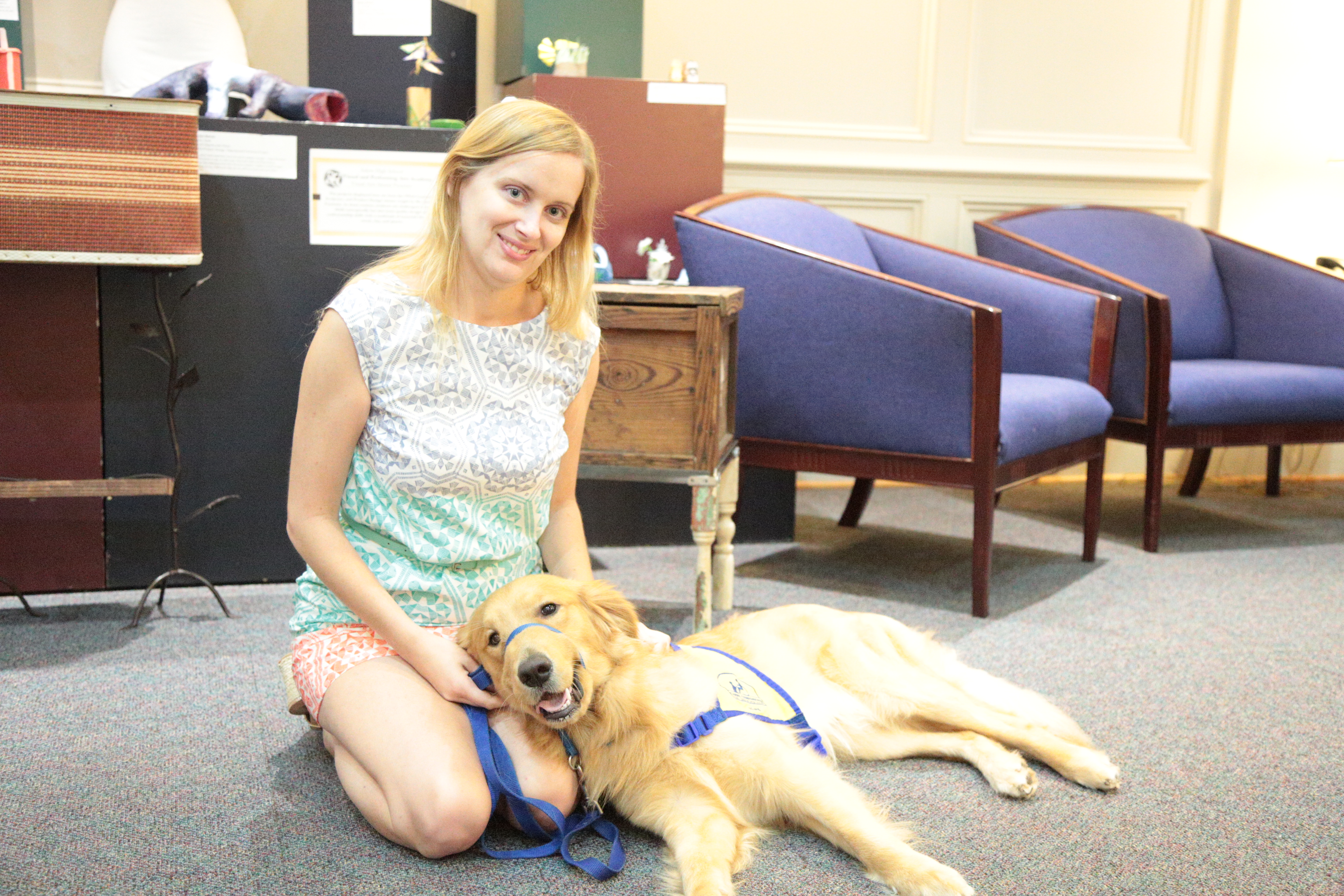
I actually got started with service dogs with my family. My mother heard about it and thought: ‘Oh this is an interesting way to kind of give back to the community.’ I was in kindergarten, I believe, when we got our first dog. We have raised nine dogs over the past 25 or so years. Quill is the fifth dog we’ve raised for Canine Companions for Independence (CCI). They deal largely with mobility-related issues, people in wheelchairs with prosthetic limbs, but they can do pretty much any type of dog for whatever disability. We’ve also raised four dogs for Guiding Eyes for the Blind. Quill is with us until November. We get the puppies when they are 8 weeks old. Most all of the organizations have the puppies raised in volunteer homes. We keep them for about a year-and-a-half. He will then go back to the regional facility in New York and there he will have about six months of professional training. So we’ve taught him the basics. We’ve gotten him socialized. They will take what we’ve done and then build upon that. It’s almost like he’s going off to college. At that point, he will see if he passes and they will place him with a person.
What if he doesn’t pass?
It’s about a 50 percent failure rate because it’s such a demanding program. We had a dog that failed because he was afraid of heights; he wouldn’t go up and down stairs. We’ve had dogs that show anxiety and you can’t really have that – it’s really not fair for the dog. We get the first right of return. If he does not pass, then we can adopt him as his raisers, but if we choose not to, then he will get adopted out. They have a very long waiting list because you’re getting an older dog; usually about a year old who is very well trained and just for whatever reason – it could be a medical issue – it doesn’t work for their program. So the dog can go for public adoption at that point.
What type of training did Quill go through while he was with you?
One of big things that we want done for these dogs is getting them used to different experiences. Just coming to work here with me, he gets to be on an elevator, he gets to be around printers and copiers and there’s all of these people around – a lot is going on. So when he goes out to his working life, there is no situation that is new to him. He’s heard planes going overhead, sirens and all kinds of things. He’s also been to school where my mom works, so he’s been around kids and all sorts of different experiences.
Are you going to get another dog?
We might. We generally take a little break between dogs because it’s a lot of work. I mean, it’s really great and when you go and see them graduate, is it such an amazing experience, but still it’s a puppy that you’ll be getting again. Every couple of hours he has to go out and he doesn’t sleep all night. If we did get another dog we would probably wait until summer when I’m off and we can devote more time.
Would you recommend this to anybody else?
It’s fun to do, but it’s also feeling like you can make a difference. People always ask, ‘Isn’t it hard to give the dog up?’ but to me it isn’t. To me, he’s going to be a pet and he’s going to be a very nice dog that I can take on walks. It’s going to change somebody’s life and I get to see this happen. I have made that happen. The first dog that we raised went to a boy, I think 17 or so, with cerebral palsy. He’s never walked a day in his life and here I am; I’m perfectly healthy. We had another boy who was in kindergarten who had spina bifida. These people need these animals.
#WeAreVBSchools